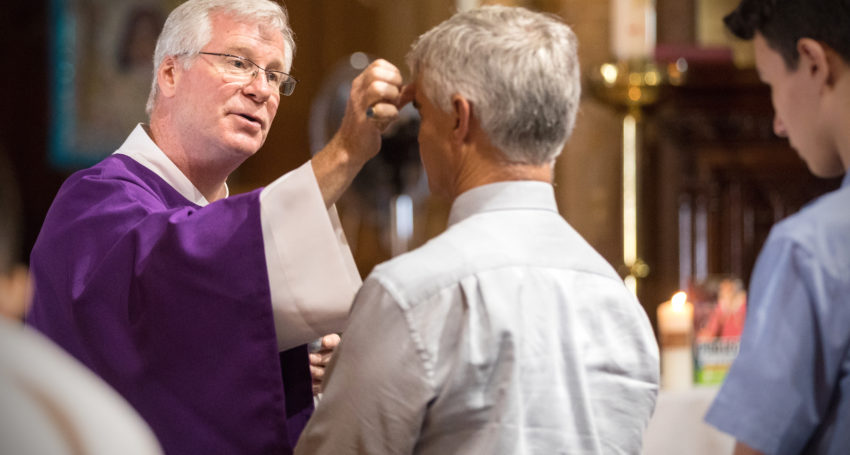Ash Wednesday starts journey to Easter
Opinion
The season of Lent extends from Ash Wednesday until the Mass of the Lord’s Supper on Holy Thursday evening, when the Easter Triduum begins. During this period neither the Gloria nor the Alleluia are sung, and a different Collect (Opening Prayer) is provided for every day, to emphasise the importance of these weeks.

But have you ever wondered where the practice of having our foreheads signed with ashes originated? The Old Testament tells us that those doing penance would dress in sack-cloth and put ashes on their heads as a sign of their repentance and we know that this practice continued with the early Christians. You may not know, however, that penance in the weeks leading up to Easter was linked to preparation for baptism of adults which, in the Early Church, often took place at Easter. Quite early in the piece it became customary for all Christians to support those preparing for baptism by sharing with them in prayer, fasting and almsgiving, and taking time to reflect on what their own baptism meant to them. An 8th century sacramentary contains a ritual for the ‘Day of Ashes’ so we know that this way of marking the beginning of Lent is at least
13 centuries old!
Advertisement
Once the practice of infant baptism came to predominate, the intensely baptismal character of Lent diminished and it became almost exclusively penitential. Instead of being a time for focusing the heart on conversion to Jesus Christ and deepening our friendship with him, it became a matter of self-denial and ‘giving up’ things. The Second Vatican Council was keen to have the two-fold focus on baptism and penance restored:
‘The recalling of baptism (or the preparation for it) and penance should be given greater emphasis in the liturgy. … It is by means of them that the Church prepares the faithful for the celebration of Easter.’ (Constitution on the Sacred Liturgy, #109)
While most of us are aware that Lent is a time of penance, perhaps we have not understood so well that the purpose of this penance is to redirect our lives to the commitment we made through our baptism to the Christian vocation and mission. We only become more attuned to this through listening to and reflecting on the word of God, through prayer (with others as well as individual dialogue with God), and through carrying out acts of kindness and generosity within our families and communities. This is why prayer, fasting and almsgiving are named as the three pillars of Lent.
Advertisement
The post-Vatican II Church retained both the name ‘Ash Wednesday’ and the rite of placing ashes in the form of a cross on the foreheads of the faithful. Why?
First, the ashes are an external sign of our interior sorrow and repentance for behaviours and attitudes that are at odds with Gospel teachings. Second, they remind us that life in this world is finite and that ultimately, death will come to each one of us. Thirdly, and perhaps most importantly, the sign of the cross imitates the signing that took place at baptism – when we were ‘claimed for Christ’ and came to bear the name ‘Christian’. We have been welcomed into the Body of Christ and enfolded in the tender love of God whose mercy and forgiveness know no bounds.
As we receive the ashes, may we resolve to make the six weeks of Lent a time of real conversion, when our hearts and minds concentrate on clearing out the ‘spiritual debris’ that has come to clutter our lives and allowing space for the Spirit of God to enter in and redirect our lives. If we do this, then the Paschal Triduum will be what it should be: the high point of the liturgical year when, in word, action and song, we celebrate the mystery of our redemption. No wonder Easter has been the traditional time to welcome new members into the Church and for ‘old’ members to renew their baptismal commitment and acknowledge with joy that Christ is risen, Alleluia!
Dr Jenny O’Brien is Liturgy Educator with the Office for Worship, Adelaide.







Comments
Show comments Hide comments